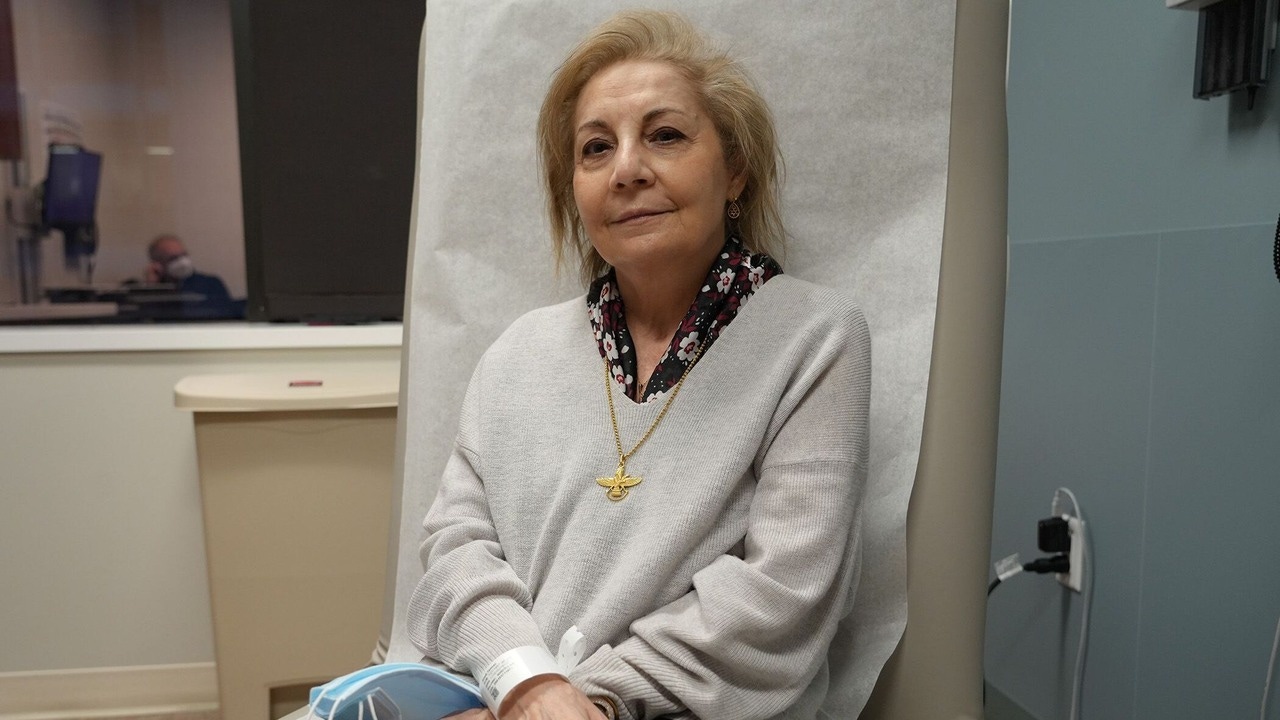From terminal to cancer-free: Minneapolis woman 2nd to have novel surgery
[anvplayer video=”5168501″ station=”998122″]
A retired Minneapolis nurse given a prognosis that she had just months to live became cancer-free within that same time frame thanks to a first-of-its-kind procedure.
Tannaz Ameli’s recovery stemmed from an innovative surgery at Northwestern Medicine initially inspired to treat COVID-19 patients, and because she blazed the trail, the door is opening for many others.
After years of chronic cold-like symptoms, Ameli got a test result in early 2022 that confirmed the worst possible news: She had stage 4 lung cancer.
“So being a healthy, cautious person for all my life, it was very shocking to hear that,” Ameli said in an interview Sunday.
Three months later, chemotherapy wasn’t cutting it, and doctors warned she had two-to-three months left.

(Northwestern Medicine)
Just as health care professionals recommended she head into hospice care, there came a glimmer of hope. Ameli saw the story of Albert Khoury, a man who traveled from Philadelphia to Northwestern Medicine in Chicago to undergo a first-of-its kind double lung transplant.
Without pause, she reached out, and there she heard the single best sentence a cancer patient could from a doctor: “I can make you cancer free.”
“I could not believe what I’m hearing,” Ameli recalled.
“Not many patients are lucky enough to hear that,” she continued, adding, “Either they just control the cancer cells or just extend your life for months or years. But being cancer-free, it’s a word that rarely a cancer patient hears.”
From there, things came together quickly. After a series of tests and evaluations at Northwestern Medicine, she discovered she was eligible and found an organ donor in less than two weeks. Ameli went in for the surgery on July 10, 2022 and came out cancer free, as promised by thoracic surgeon Dr. Ankit Bharat.
“I think that in some patients that it will be a game changer,” Bharat said in a separate interview Sunday.
Lung transplants, and even double-lung transplants, have been happening in operating rooms for decades, but for cancer patients, “they have been met with mixed enthusiasm,” Bharat said.
“Because the conventional technique of a lung transplant involves taking one lung out first, putting a new lung in and then… replacing the second lung.”
That comes with a high risk of leaving cancer cells behind, allowing them the opportunity to multiply again, he explained.
Now, Northwestern doctors have found a way to remove both lungs together, carefully monitoring the chest cavity for cancer cells, before inserting the new lungs. Khoury and Ameli became the first known lung cancer patients to give it a try.
The procedure was first inspired to treat COVID-19 patients.
“We were the first in the country to perform that in 2022, and we did a lot of those transplants,”
Bharat said.
“So we thought that we could apply those same principles into patients who have cancer.”
Eight months post-operation, Ameli said she’s living the most comfortably she has in 20 years.
“I don’t have any pain. I don’t have any issues,” she said Sunday.
Medicine moves forward thanks to the calculated risks taken by Ameli and her family, Bharat said.
“Without that trust, without that advocacy, I think these new approaches don’t typically happen in medicine,” he added.
“My husband every day was telling me that ‘I’m not gonna give you up,'” Ameli said.
“And he didn’t.”
Northwestern Medicine announced a new clinical program last week, opening the door for continued study of the transplant’s efficacy and an opportunity for other patients to receive it.
It’s not an option for all, or even more, lung cancer patients, Bharat noted. Instead, the procedure is a last stop for patients like Ameli, who have not seen success with other treatment options. It can also only be done in patients whose cancer is contained to their lungs.
Ameli spoke with 5 EYEWITNESS NEWS Sunday via Zoom from Chicago, where she remains with family while receiving regular checkups.